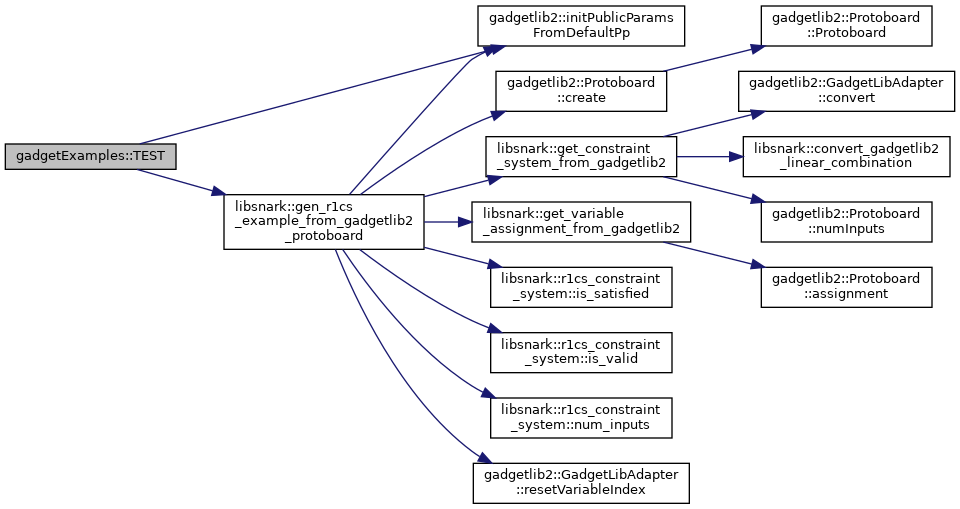Classes | |
| class | HashDifficultyEnforcer_Gadget |
| class | NAND_Gadget |
| class | R1P_VerifyTransactionAmounts_Gadget |
Functions | |
| TEST (Examples, ProtoboardUsage) | |
| TEST (Examples, NAND_Gadget) | |
| TEST (Examples, HashDifficultyEnforcer_Gadget) | |
| CREATE_GADGET_BASE_CLASS (VerifyTransactionAmounts_GadgetBase) | |
| CREATE_GADGET_FACTORY_CLASS_3 (VerifyTransactionAmounts_Gadget, VariableArray, txInputAmounts, VariableArray, txOutputAmounts, Variable, minersFee) | |
| TEST (Examples, R1P_VerifyTransactionAmounts_Gadget) | |
| TEST (gadgetLib2, Integration) | |
Function Documentation
◆ CREATE_GADGET_BASE_CLASS()
| gadgetExamples::CREATE_GADGET_BASE_CLASS | ( | VerifyTransactionAmounts_GadgetBase | ) |
◆ CREATE_GADGET_FACTORY_CLASS_3()
| gadgetExamples::CREATE_GADGET_FACTORY_CLASS_3 | ( | VerifyTransactionAmounts_Gadget | , |
| VariableArray | , | ||
| txInputAmounts | , | ||
| VariableArray | , | ||
| txOutputAmounts | , | ||
| Variable | , | ||
| minersFee | |||
| ) |
◆ TEST() [1/5]
| gadgetExamples::TEST | ( | Examples | , |
| HashDifficultyEnforcer_Gadget | |||
| ) |
◆ TEST() [2/5]
| gadgetExamples::TEST | ( | Examples | , |
| NAND_Gadget | |||
| ) |
◆ TEST() [3/5]
| gadgetExamples::TEST | ( | Examples | , |
| ProtoboardUsage | |||
| ) |
◆ TEST() [4/5]
| gadgetExamples::TEST | ( | Examples | , |
| R1P_VerifyTransactionAmounts_Gadget | |||
| ) |
◆ TEST() [5/5]
| gadgetExamples::TEST | ( | gadgetLib2 | , |
| Integration | |||
| ) |





 1.8.17
1.8.17